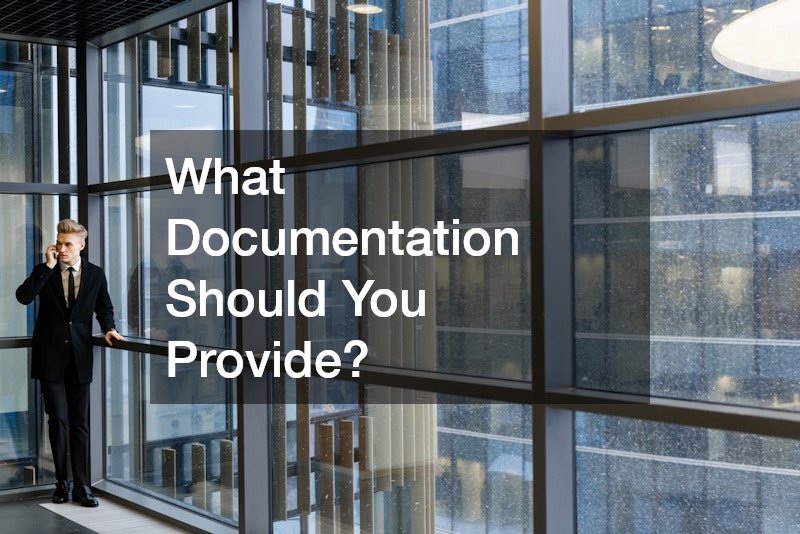When legal troubles arise, uncertainty often follows. Whether you’re facing a family dispute, workplace injury, or complex civil matter, knowing how to call a lawyer can make all the difference between confusion and clarity. For many people, reaching out to an attorney can feel intimidating—especially if it’s the first time seeking legal help. However, understanding how to approach this initial step can set the tone for a more productive and stress-free experience.
A well-prepared phone call allows your lawyer to grasp the essentials of your situation quickly and provide guidance tailored to your circumstances. It’s not just about picking up the phone—it’s about knowing what information to have ready, what questions to ask, and how to communicate clearly. Whether you’re dealing with a family matter like divorce or estate planning, or more specialized areas like civil litigation or workers’ compensation, the way you initiate contact matters.
This guide walks you through the process of calling a lawyer effectively—from identifying when to reach out, to what details to provide, and how to communicate in a way that supports your best legal outcome. By the end, you’ll understand not only how to call a lawyer but also how to make that call count.
Why Might You Need to Call a Lawyer?

There are countless reasons people find themselves needing to call a lawyer, and many of them involve sensitive, personal, or high-stakes issues. One of the most common reasons is the process of divorce mediations. When a marriage is coming to an end, emotions can run high, and important decisions—like property division, child custody, and financial arrangements—must be handled with care. A lawyer helps you navigate these discussions, ensuring your rights are protected and that agreements are legally sound.
Beyond divorce, people also should know how to call a lawyer for assistance in areas such as contract disputes, business conflicts, personal injury claims, or criminal charges. Some may need legal help to understand their rights before signing important documents or to mediate disagreements outside of court.
Even if you’re unsure whether your problem is “serious enough” to warrant legal counsel, a consultation can often clarify the situation. Lawyers are not just for emergencies—they are advisors, negotiators, and advocates. Knowing when and how to call one ensures you don’t make decisions that could negatively affect your future.
What Information Should You Have Ready?
Before you know how call a lawyer, it’s helpful to gather essential details about your situation. This preparation makes your initial conversation smoother and more productive. If you’re dealing with wills and trusts, for instance, you should have documentation outlining assets, beneficiaries, and any existing estate planning materials.
Generally, you’ll want to collect:
- Basic personal information (names, dates, contact details)
- Relevant documents such as contracts, correspondence, or court notices
- A clear summary of your problem, including dates and key events
- Desired outcomes or questions you want answered
For example, if you’re updating a will or establishing a trust, your probate lawyer will need to know about your property, dependents, and specific wishes. If you’re calling about another legal matter, try to identify the main facts without getting lost in emotion or unnecessary details.
Remember: attorneys operate best with factual, organized information. Taking a few minutes to write down your main points before the call can help ensure your concerns are clearly understood and addressed effectively.
When Is the Best Time to Contact a Lawyer?
Timing can be crucial in legal matters. For issues like estate planning, the best time to contact a lawyer is long before an emergency arises. Too often, people postpone legal consultations until they’re facing an immediate crisis—such as a contested will or a family dispute over inheritance. Proactive communication with a lawyer allows for thoughtful planning, reducing stress and potential conflict later on.
In other situations, like car accidents, workplace injuries, or criminal charges, immediate contact with a lawyer can protect your rights and prevent costly mistakes. The earlier you involve legal counsel, the better your chances of building a strong case or resolving the issue efficiently.
If you’re uncertain whether the timing is right, remember this general rule: it’s better to know how call a lawyer too soon than too late. A brief initial consultation can save time, money, and complications in the long run.
How to Find the Right Lawyer

Choosing the right lawyer is as important as deciding to call one. Each area of law requires specific expertise. For example, if you’re facing a child custody issue, you’ll want to contact a custody attorney—someone experienced in family law who understands the nuances of parenting plans, child support, and custody evaluations.
To find the right lawyer:
- Identify your legal issue (e.g., family law, real estate, business disputes).
- Search for specialists within that field. Many law firms list their practice areas online.
- Check credentials and reviews. Look for testimonials, bar association listings, and disciplinary history.
- Ask for referrals. Friends, colleagues, or other professionals may recommend reputable attorneys.
- Schedule consultations. Speaking with a few lawyers can help you find someone whose communication style and approach align with your needs.
Knowing how to call a lawyer builds trust and ensures that you’re working with someone who not only understands the law but also values your unique goals and concerns.
Preparing to Explain Your Situation
Once you’ve found a family law attorney or another specialist, it’s time to prepare for your initial discussion. Clear and concise communication helps your lawyer assess your case quickly and accurately.
Before your call, take a few minutes to:
- Write a short summary of your situation, focusing on key facts.
- Note important dates (marriage, separation, incident reports, etc.).
- List all parties involved, including names and relationships.
- Avoid emotional digressions. While feelings are valid, legal discussions focus on facts and evidence.
For instance, if you’re calling about a child custody matter, describe the custody arrangement, any court orders in place, and recent events affecting your child’s welfare. Lawyers appreciate when clients present information logically, as it allows them to provide accurate advice and develop an effective legal strategy.
Being prepared shows respect for both your time and your lawyer’s expertise, setting a strong foundation for collaboration.
Should You Expect a Consultation Fee?
Many people don’t know how to call a lawyer because they worry about costs. The good news is that consultation fees vary widely depending on the type of lawyer and the complexity of your case. For example, a civil litigation attorney—someone who handles lawsuits between individuals or organizations—may charge for an initial consultation, while others may offer free or reduced-cost meetings.
Here’s what to know:
- Free consultations are common for personal injury or workers’ compensation cases, where lawyers work on contingency (they only get paid if you win).
- Flat consultation fees are typical for more complex cases like business disputes or estate planning.
- Hourly rates may apply once you hire the attorney to handle your case.
When scheduling the call, ask about fees upfront. Transparency about costs helps you make informed decisions and prevents unexpected expenses later. Remember, even a paid consultation can be worthwhile if it provides clarity and direction for your next legal steps.
What Questions Should You Ask the Lawyer?

Knowing what to ask during your first call once you know how to call a lawyer is just as important as explaining your situation. If you’re contacting a workers compensation lawyer, for instance, you’ll want to ask questions that clarify your rights and the process ahead.
Some key questions include:
- What experience do you have with cases like mine?
- What are my legal options?
- What are the likely outcomes or challenges?
- How do you charge for your services?
- What information or documents will you need from me?
Tailor your questions to your specific situation. For example, in a workplace injury case, ask how long the claims process typically takes, what benefits you might qualify for, and whether your employer’s insurance company might dispute your claim.
Good lawyers welcome thoughtful questions—it shows that you’re engaged and serious about your case. This conversation also helps you assess whether the lawyer communicates clearly and listens to your concerns.
How to Communicate Effectively with Your Lawyer?
Effective communication is the cornerstone of a successful attorney-client relationship. Whether you’re speaking to a spousal support attorney or a criminal defense lawyer, your ability to express yourself clearly—and listen carefully—can directly influence the outcome of your case. Open, honest dialogue builds trust and allows your lawyer to provide the strongest possible representation. If you withhold information, even unintentionally, it could undermine your legal position or limit the strategies available to your attorney.
When learning how to call a lawyer, focus on presenting the facts as clearly as possible. Avoid lengthy emotional explanations and stick to key details that directly relate to your situation. However, don’t hesitate to ask for clarification when something is unclear. Lawyers often use legal terminology that may be unfamiliar, and a good attorney will always be willing to explain in plain language so you can make informed decisions.
Maintaining records of all communications—such as emails, phone calls, or meeting notes—can also help you stay organized and ensure important details aren’t lost, a very important part of how to call a lawyer. Being responsive to your lawyer’s requests demonstrates professionalism and commitment to your case. Remember, communication is a two-way relationship built on mutual respect, transparency, and timeliness. When both client and attorney communicate effectively, they can work together seamlessly toward achieving the best possible outcome.
What Documentation Should You Provide?

Providing proper documentation is one of the most important parts of how to call a lawyer. If you’re calling a landlord tenant lawyer, for example, relevant documents might include your lease agreement, payment records, and correspondence with your landlord or property manager.
In general, gather materials that:
- Support your version of events (emails, photos, receipts, contracts)
- Establish a timeline (letters, notices, or records of communication)
- Provide identification or ownership proof (IDs, property titles, or wills)
For financial or business-related cases, include tax returns, bank statements, or invoices. For family matters, prepare marriage certificates, custody agreements, or court orders.
Well-organized documentation helps your lawyer analyze the case quickly and build a stronger argument. Before you know how to call a lawyer, scan or photograph key documents so you can send them electronically if requested. Having this ready shows professionalism and speeds up the process of getting legal help.
Once communication begins, clarity and consistency become the backbone of a successful attorney-client relationship. Understanding your lawyer’s communication style not only keeps you informed but also ensures that you remain actively involved in your case. Many law firms today utilize multiple channels of communication—such as secure client portals, encrypted emails, or scheduled phone consultations—to keep information safe and accessible. Some even offer text message updates for quick reminders or appointment confirmations, though sensitive details are typically reserved for more secure formats.
It’s also important to establish expectations about response time. Ask how long it typically takes for your lawyer or their staff to return calls or emails. This can help you plan accordingly and avoid unnecessary worry if there’s a delay during busy periods or court proceedings.
Finally, keep in mind that communication works both ways. Your lawyer depends on you to provide timely updates and respond to requests for documents or information. Consistent, respectful communication helps foster collaboration, reduces misunderstandings, and strengthens your overall legal strategy. By knowing exactly how and when to stay in touch, you create a smoother, more transparent working relationship that ultimately benefits the outcome of your case.
Understanding how to call a lawyer and what to say is one of the most valuable skills you can develop when facing a legal challenge. Whether it’s a divorce mediation, estate matter, workplace injury, or civil dispute, effective preparation and communication are key to achieving the best outcome. By gathering relevant information, asking the right questions, and maintaining clear dialogue, you empower your lawyer to represent your interests confidently and efficiently.
Reaching out for legal help doesn’t have to be intimidating—it’s a proactive step toward resolving problems and protecting your future. The next time you face a legal issue, remember that how you make that first call matters. With clarity, organization, and open communication, you’ll not only find the right lawyer but also build a partnership designed for success.




